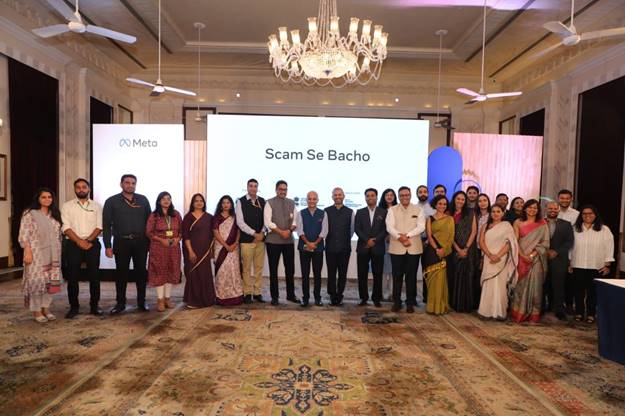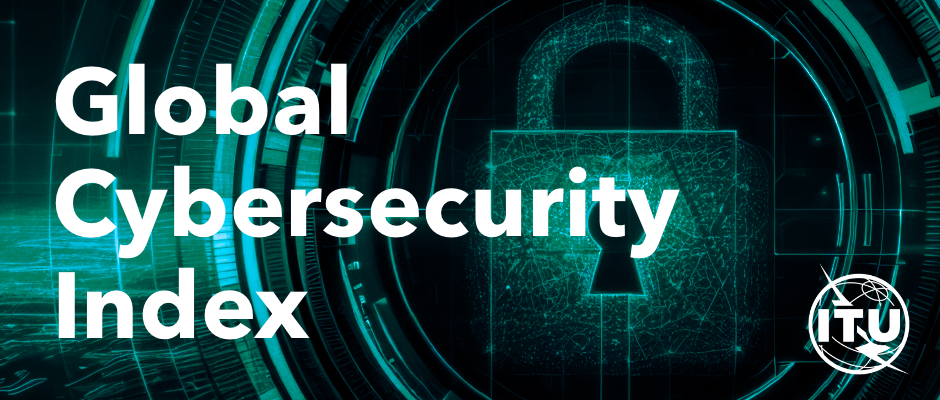Scam se Bacho Campaign

- 18 Oct 2024
In News:
Government and Meta join forces for "Scam se Bacho" Campaign to tackle rising online scams.
Key Details
- The "Scam Se Bacho" initiative aims to create a safer, more secure digital India by empowering users to protect themselves against growing cyber threats, contributing to the resilience of India’s digital progress.
- Objective: To combat rising online scams and cyber frauds by promoting digital safety and vigilance across India.
- Partners:
- Meta (formerly Facebook)
- Ministry of Electronics and Information Technology (MeitY)
- Ministry of Home Affairs (MHA)
- Ministry of Information and Broadcasting (MIB)
- Indian Cyber Crime Coordination Centre (I4C)
Purpose and Vision
- Goal: Empower Indian citizens with the knowledge and tools to protect themselves from online scams and cyber threats.
- Strategic Focus:
- Foster a culture of digital safety and vigilance.
- Align with the Digital India initiative, which has seen extraordinary growth in digital services, including 900 million internet users and leadership in UPI transactions.
- The campaign aims to build a national movement to safeguard citizens, emphasizing the importance of cyber literacy and digital security.
Key Points
- Growing Cybersecurity Threats:
- India has seen a surge in cyber frauds, with 1.1 million cases reported in 2023.
- The government is committed to addressing these threats through stronger cybersecurity measures and enhancing digital literacy.
- Meta’s Role:
- Meta’s global expertise in online safety will be leveraged to equip citizens with the knowledge to prevent cyber scams.
- Meta’s collaboration with the government aims to extend the reach of the campaign nationwide.
Features of the "Scam Se Bacho" Campaign
- Nationwide Reach:
- The initiative targets India’s 900 million internet users, making it a comprehensive national effort.
- Government Support:
- Backed by key ministries to ensure alignment with national digital and cybersecurity goals under Digital India.
- Whole-of-government approach to raise awareness on cyber safety.
- Educational Focus:
- The campaign emphasizes educating citizens on how to recognize and prevent online scams and threats.
GLOBAL CYBERSECURITY INDEX 2024

- 21 Sep 2024
In News:
- India has achieved Tier 1 status in the Global Cybersecurity Index (GCI) 2024, published by the International Telecommunication Union (ITU), with an impressive score of 98.49 out of 100.
Role-Modeling Country: This accomplishment places India among ‘role-modeling’ countries, reflecting a strong commitment to cybersecurity practices globally.
Assessment Criteria: The GCI 2024 evaluates national efforts based on five pillars:
-
- Legal Measures
- Technical Measures
- Organizational Measures
- Capacity Development
- Cooperation
- Evaluation Methodology: The index utilized a comprehensive questionnaire comprising 83 questions, which cover 20 indicators, 64 sub-indicators, and 28 micro-indicators, ensuring a thorough assessment of each country's cybersecurity landscape.
- Tier Classification: The GCI 2024 report categorized 46 countries in Tier 1, the highest tier, indicating a strong commitment across all five cybersecurity pillars. Most countries fall into lower tiers, either “establishing” (Tier 3) or “evolving” (Tier 4) their cybersecurity frameworks.
Key Achievements
- Global Standing: India ranks at the top level of global cybersecurity rankings, showcasing its dedication to enhancing cyber resilience and securing its digital infrastructure.
- Government Initiatives:
- Robust Frameworks: Establishment of comprehensive frameworks for cybersecurity and cybercrime laws.
- Sectoral Support: Implementation of Sectoral Computer Incident Response Teams (CSIRTs) that provide technical support and incident reporting across various industries.
- Educational Integration: Cybersecurity has been integrated into primary and secondary education curricula to foster informed digital citizens.
- Public Awareness: Targeted campaigns have promoted secure online practices across multiple sectors, including private industry and academia.
- Skill Development and Innovation: The government has provided incentives and grants to enhance skill development and promote research within the cybersecurity sector.
- International Collaborations: India has engaged in numerous bilateral and multilateral partnerships to strengthen its capacity-building and information-sharing efforts.
About the International Telecommunication Union (ITU)
- Overview: Established in 1865, the ITU is the United Nations specialized agency for information and communication technologies, becoming a UN agency in 1947.
- Membership: ITU has 193 member countries and over 1,000 associated organizations, including companies and universities.
- Functions: ITU coordinates global radio spectrum allocation, sets technical standards for telecommunication, and works to improve ICT access in underserved communities.
- India's Involvement: India has been an active ITU member since 1869 and a regular participant in the ITU Council since 1952.
